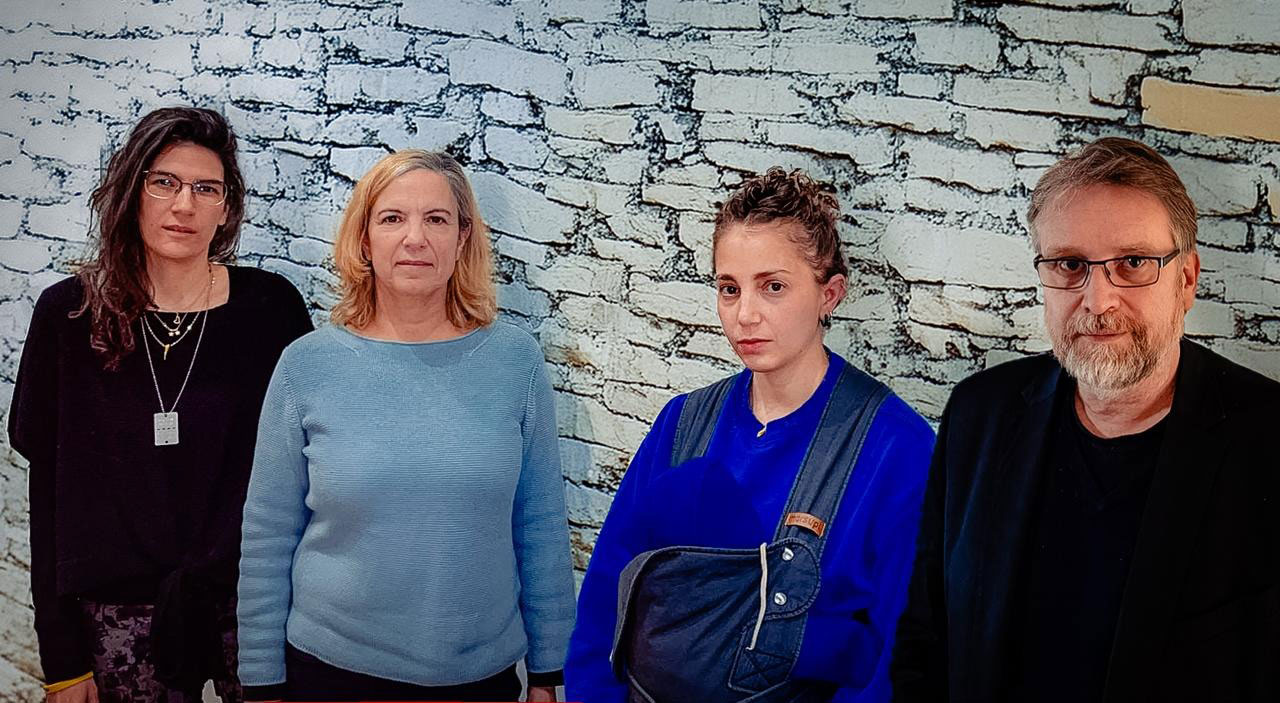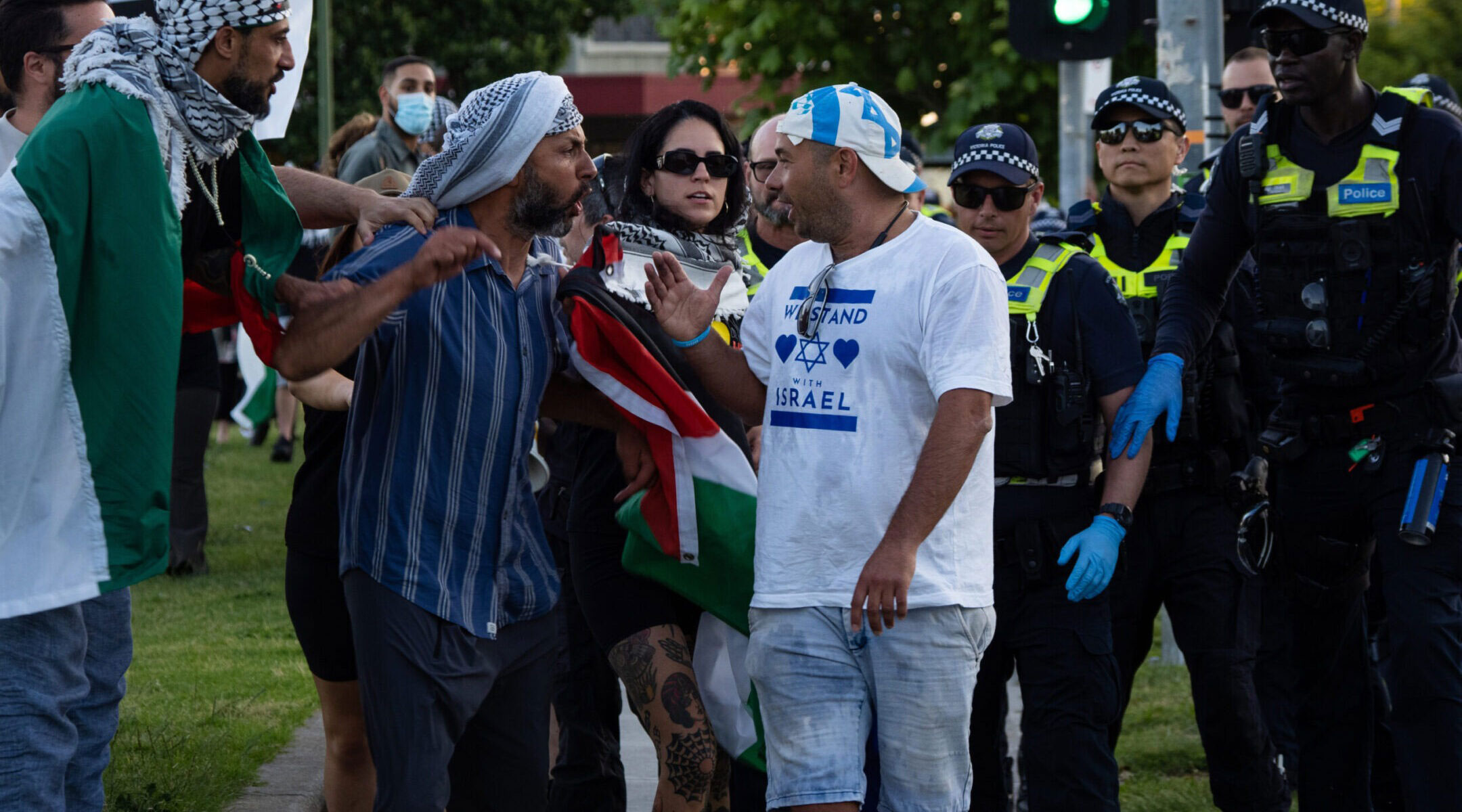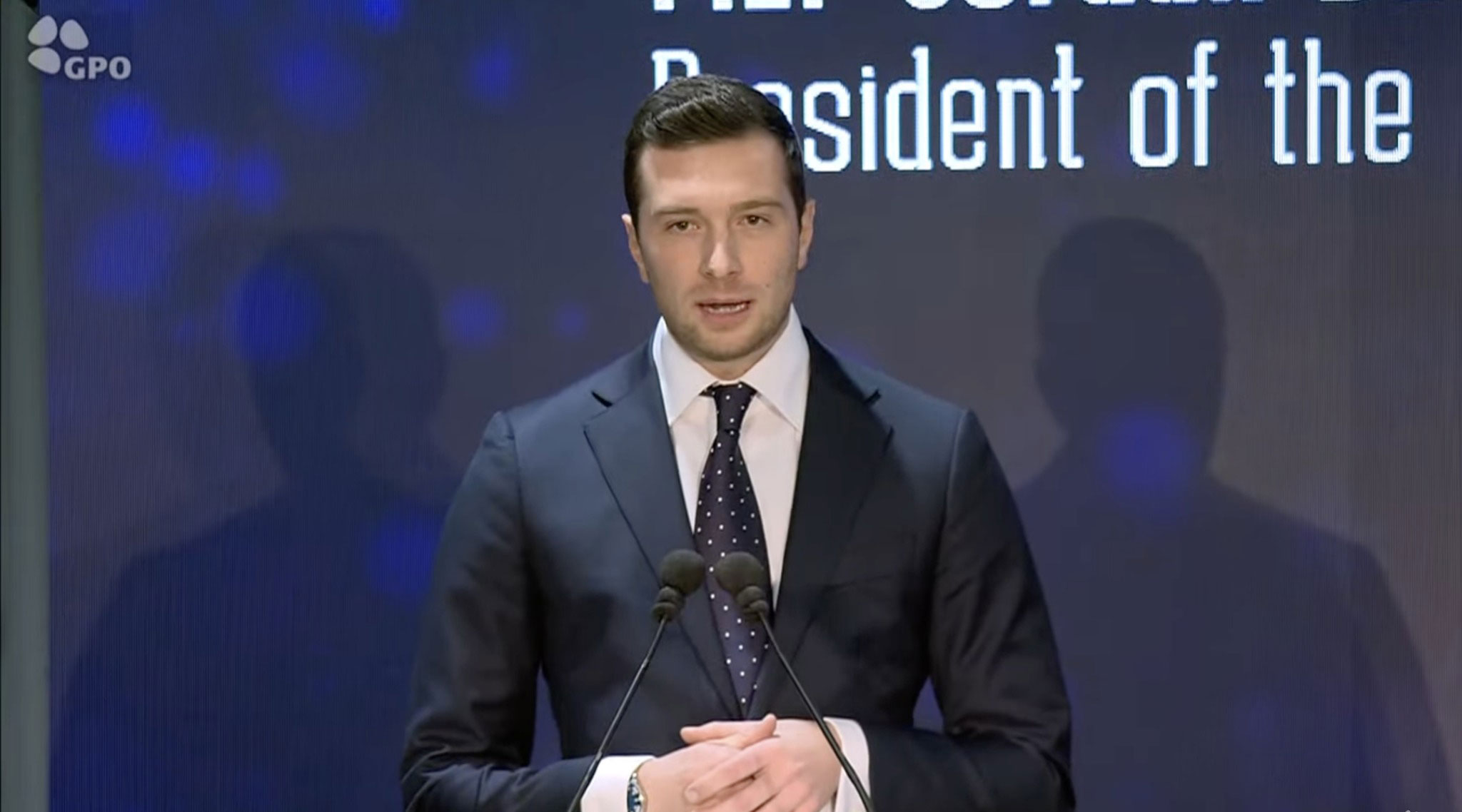Courtesy of JNS. Photo credit: International Criminal Court
The judges and guests of the International Criminal Court at the opening of the ICC judicial year on Jan. 18, 2019, in The Hague
(JNS) — “The suspects can decide to appear on a voluntary basis and surrender to the ICC. They have all the rights of the defense that are guaranteed, including the presumption of innocence.”
That’s what Fadi El Abdallah, the spokesperson and head of the Public Affairs Unit at the International Criminal Court in The Hague, told JNS when asked what is expected now from Prime Minister Benjamin Netanyahu and former Defense Minister Yoav Gallant, now that the ICC has issued warrants for their arrest on charges of genocide.
“There is an arrest warrant that has been issued for the individuals, and it is the legal obligation of the states that are parties to the Rome Statute to cooperate with us,” El Abdallah continued. (Israel is not a party to the treaty that established the court — A.S.)
But how is it possible, JNS asked, that only Israeli leaders are standing trial in connection to the Gaza war (an arrest warrant was also issued for Hamas leader Mohammed Deif, but he is dead).
“The ICC is checking if during a war crimes have been committed, and who is responsible. Even in wars there are rules that need to be applied to everyone,” El Abdallah said. “The judges simply decided based of the evidence and based on the rules.”
Will U.S. President-elect Donald Trump’s promise to sanction all those involved in the arrest warrants affect the court’s decision, JNS asks.
“The ICC has a legal mandate and we have to fulfill it. There are 124 states that gave the ICC a specific mandate to serve justice and to serve victims, and we have to fulfill our duty. We cannot take any political matters into consideration. We can only look at things with total independence and impartiality,” the spokesman responded.
But still, JNS asked, you see countries such as France and Germany saying they won’t arrest Netanyahu and Gallant. You cannot say this doesn’t damage the court credibility or authority.
“As I said,” El Abdallah replied, “no political matters can be taken into consideration. The judges are independent and impartial and will only decide based on the applicable legal rules and the evidence that are before them.”
If there are requests of the ICC in relation to the implementation of its decision, they have to be raised with the judges, who will then decide on them, the Lebanese spokesperson added.
Some in Israel claim that if only there were a state commission of inquiry into the events of Oct. 7, 2023, and its aftermath headed by the president of the Supreme Court, the arrest warrants would not have been issued.
“The arrest warrants have been issued,” the ICC spokesperson said. “They cannot be withdrawn unless by the judges themselves based on a strong legal argumentation. If there is a request to the ICC judges, then they will have to check if all the conditions are met. But the general rules are that there is a need to establish that there are indeed genuine investigations for the same individuals and for the same alleged actions as indicated by the [ICC] decision.”
Israel is not one of the 124 countries that signed the Rome Statute. This simple fact raised many eyebrows: How can the court put on trial the leaders of a country that is not within its jurisdiction?
“The ICC does not prosecute states, but it persecutes individuals for alleged criminal responsibility,” El Abdallah told JNS. “The ICC jurisdiction covers the Palestinian territories, so Gaza, the West Bank and East Jerusalem, and that means that when the state of Palestine ratified the Rome Statute [in 2015], if crimes are committed by anyone on the territory of Palestine, they can be prosecuted.”
JNS then asked: You understand that the Israeli public sees the arrest warrant decision as antisemitic and anti-Israel, especially as it’s based on the decision, which was widely criticized, of the Palestinian Authority joining the court.
MK Simcha Rothman, who chairs the Knesset Constitution, Law and Justice Committee, told JNS, “I think it is very, very clear that it would not have mattered whether Israel had established a state commission of inquiry or whether it would have established a civil committee.
“Essentially what the spokesperson is claiming is that an investigation on the suspicious [sic] of genocide or crimes against humanity should have been opened [by Israel] against Gallant and Netanyahu — which of course no country would do. And of course, this shows that the claims of supporters of the [Israeli] judicial system, that the prestige of the judicial system could save us from the ICC, are untrue,” Rothman said.
This week, Netanyahu decided to appeal to the ICC against the decision to issue the arrest warrants.
“I think there is no need to appeal. The very act of appealing to the ICC judges gives it treatment it does not deserve,” Rothman told JNS. “This is an illegitimate body, and it should be treated as such. And we should act diplomatically with countries and use this incident as an opportunity to take steps against both the court and the perpetrator of the trial in the court, which is the Palestinian Authority.”
Rothman said this is a golden opportunity to weaken the ICC. “By imposing sanctions and delegitimizing the court, it will cause more countries to leave the court. Many people understand that this step will be used against them as well, so it should be used to harm the court,” he said.





